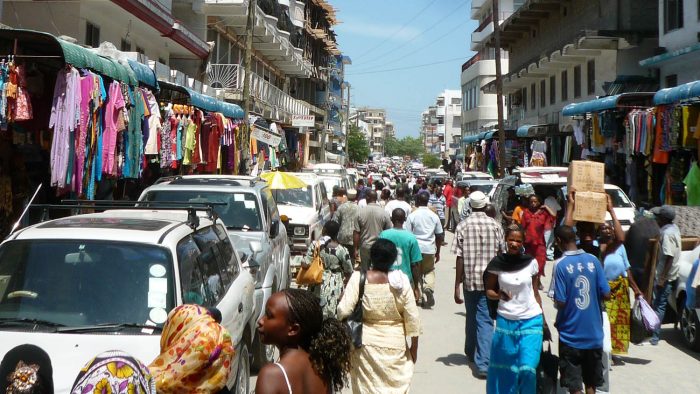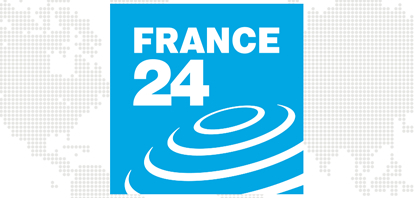
Market in Dar Es Salaam, Tanzania (Photo credit: Wikipedia)
Overview
By now, we all know several e-commerce companies have tried and not really caught the fire across sub-Saharan Africa. From Kalahari to Konga, to Jumia, e-commerce has failed to scale and become profitable in most parts of Africa.
The reality of e-commerce in Africa deviates from what is obtainable in the Western world.
Here are some key factors I believe are hindering traditional e-commerce from picking up and scaling in Africa.
1) Buying Culture
In Africa, approximately 80% of consumers bargain before purchase. Most times, if I go to the market and I see say a perfume for FCFA 20,000, I will definitely ask the shop owner if I can have it for FCFA 15,000 and that’s how we shop here.
Physical stores give us this option. Traditional e-commerce doesn’t. Hence, we will prefer to visit a local brick-and-mortar store rather than buy online. This is one of the many reasons e-commerce is taking forever to take root in Africa, and Cameroon in particular.
2) Logistics Infrastructure – House Addresses
Most cities in Africa aren’t well structured or even planned. Take Buea for instance where I am based. There are no standard street names and house addresses or house numbers. This makes it very difficult to implement e-commerce delivery like it’s done in the West or more developed countries.
3) Logistics Infrastructure – Road Network
Many non-functioning postal systems abound in Africa, making it difficult for e-commerce to kick off. That’s besides the poor road networks in most African countries that make delivery either very expensive or impossible in some rural areas.
Take Cameroon for instance. Our 10 major cities have roads connecting them but beyond those, most of the sub-urban areas don’t have good roads or have poorly maintained roads. This definitely hinders conventional e-commerce by making delivery expensive or impossible at scale.
4) Payment Infrastructure
In most of sub-Saharan Africa, not up to 30% of consumers have bank accounts and that means over 70% don’t have access to a proper financial and payment infrastructure. In Cameroon, for example, out of a population of say 26 million people, only about 2 million have bank accounts and that’s like 7%.
Worse still, even those who struggle to have bank accounts usually don’t have debit or credit cards. Even worse, those with bank cards (rich Africans) are skeptical about putting their credentials online due to online fraud.
Speaking of online fraud, Nigeria, Ghana, and South Africa are ranked in the top ten in cybercrime worldwide. The high probability of being a victim of online fraud severely constrains the growth of e-commerce in Africa.
Without attracting the high spenders, e-commerce in Africa will continue to serve primarily college students and a younger population.
Let’s face it; e-commerce is a numbers game. If most people can’t pay online, how will e-commerce thrive? Interestingly, even Uber is forced to allow cash payments from riders to drivers in Africa. I know because I paid for Uber in Accra, Kumasi, and Nairobi with cash and I was wondering how Uber recovers their cut.
5) Fear and Legal Systems
Something I didn’t understand in the past was how Western legal systems enabled online commerce in the West. I am sure most people won’t see the connection but I will explain.
In a country with a strong legal system, people buy online without fear because they know if they get scammed, there is some sort of insurance to follow up and use the judicial system to get justice and recover their loss. And if the judicial system is really good, they can get compensation.
In most of Africa, however, our judicial systems aren’t really that effective, leaving most people at the mercy of cybercriminals. Without strong judicial protections and insurance, most people are scared to make payments online and prefer to visit a physical store, buy, and get a receipt.
Without a doubt, this affects conventional e-commerce implementations in most of sub-Saharan Africa.
What’s more, most African countries lack many of the basic requirements of a legal framework for e-commerce. Apart from Algeria, no other African country has laws providing for the acceptance of electronic signatures. A few countries, including Algeria, Côte d’Ivoire, Ethiopia, Morocco, Senegal, and Tunisia, have made progress in establishing a legal framework for e-commerce. Yet, many other African countries still lag behind.
6) Skills and Mindset
For e-commerce to work, one needs a skilled workforce that can be trusted (see point 5 above). Logistics isn’t easy to get right and you need an army with dedication and the right mindset to get it right.
In Cameroon, for example, one of the issues I am sure Jumia faced was finding the right people to do the job and even when they found the right people, I am sure there were still issues of fraud.
Take for example logistics and payments. To solve logistics and payment constraints, Jumia, like Uber, definitely had to opt for cash-on-delivery. But then, this means delivery people will handle cash, and if a delivery agent delivers something worth 20 times their monthly salary, there is a high probability for them to make away with the cash.
Also, e-commerce needs software engineers, product designers, sales, marketing, and operations people. Finding the right people who will effectively find all the solutions needed is hard in Africa. What Jumia did was hire teams in Europe and the Middle East. Yet, you can’t solve e-commerce in Africa by proxy. You need to live it everyday while trying and testing different solutions. What does this mean?
E-commerce needs local experts that have the mindset and the skills to crack it.
7. Literacy Rates
Even if all the infrastructure and legislation issues are fixed, illiterate citizens may still be unable to participate directly on e-commerce sites that require reading and writing skills. African countries like Burkina Faso, Chad, and Niger, for example, have literacy rates less than 30%.
Without investing in the education of these citizens, the pool of potential customers for e-commerce companies in Africa will be very very small.
Conclusion
E-commerce in Africa will definitely work and scale. It will just take some time and effort. However, we can start doing a few things differently now like investing in our financial, logistics and other infrastructures, reviewing our judicial systems to prosecute fraud and improve trust in e-commerce, as well as improving our literacy rates.
There are countless more reasons why conventional e-commerce hasn’t lived up to expectations in Africa and several more ways to fix Africa’s broken systems to foster e-commerce.
But then, as Kelvin and I build the Buyam app, I am certain we will find sustainable and scalable solutions to the problems hindering the growth of conventional e-commerce in Africa.








One thought on “Why Conventional E-commerce Hasn’t Scaled in Africa”
Comments are closed.